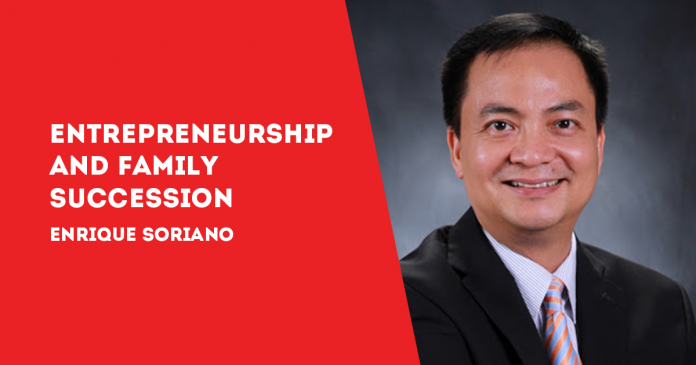
“SIGNED with Hope, Forgotten in Practice!” — that phrase probably captures my biggest frustration after more than two decades of coaching family enterprises across Asia.
Time and again, I’ve witnessed family members gather for what they believe will be a turning point: emotional sessions filled with optimism, culminating in the signing of a long-awaited Family Constitution. Photos are posted on social media, and everyone goes home believing harmony has finally been restored.
But six months later, everything goes quiet. The Family Constitution — once hailed as a milestone — gets tucked away, figuratively and literally, on the top shelf. It becomes a framed relic of good intentions, slowly gathering dust.
Across ASEAN, the failure rate of Family Constitutions that are signed but never implemented is alarmingly high — close to 60 percent. In my seminars, I often encounter participants who admit, sometimes painfully, that their families have not met since the signing ceremony years ago. One family member once told me, almost in tears, “We were so hopeful after the signing. But today, we are back to square one.”
That is precisely why our firm has redefined the methodology. We no longer treat constitution drafting as a weekend event but as part of a structured governance journey — one that begins with a deep diagnostic and assessment phase and demands sustained commitment from the family. Our process takes a longer, more deliberate route, anchored on intensive discussions about institutionalizing rules, values, and decision-making frameworks — all designed for the greater good and the enduring legacy of the family enterprise.
My answer to families that revert to conflict is always straightforward: Without activation or compliance, developing a Family Constitution is just a paper exercise.
The Illusion of Resolution
Most families commission a Family Constitution out of urgency, not foresight. They seek governance as a reaction to conflict, not as a commitment to culture change. The process becomes a symbolic act of peace-making rather than the start of long-term discipline.
What many fail to realize is that the signing is just the beginning. The Constitution is not a “cure all” document — it is a framework that demands continuous activation. It must be reviewed, tested, and lived. Without this, families simply return to their old transactional habits, where power, emotion, and hierarchy once again dominate decision-making.
Why Families Renege
From my work with hundreds of families, I’ve identified several recurring patterns behind this apathy:
* Lack of leadership belief and commitment. Senior members sign off but fail to model enforcement.
* Time and resource neglect. The family expects transformation without allocating energy or personnel to governance councils.
* Daily pressures take over. Growth, expansion, and emergencies become excuses for inaction.
* Avoidance of hard choices. Families resist difficult discussions or accountability measures.
* Low reinforcement. No recognition for governance thinking, only for financial performance.
* Cultural hesitation. Many Asian families still avoid confrontation, mistaking silence for harmony.
This cycle often leads to cynicism. Once the Constitution fails, family members grow skeptical of future governance initiatives. The emotional vulnerability that went into drafting the document — the courage to speak and listen — is rarely recovered.
The Litmus Test
Governance is not about drafting perfect documents. It’s about transforming behavior. The real test comes after the ink dries — when the cameras are gone, when emotions settle, and when the family must choose between comfort and commitment.
If your Family Constitution sits untouched, gathering dust on a shelf, then you haven’t built governance — you’ve built symbolism.
In the end, a Family Constitution is only as strong as the family’s will to live by it.
***
Family Governance Masterclass: Five Slots Left!
Power without accountability destroys wealth and trust. Sweetheart deals, self-dealing, and unchecked in-law influence quietly erode not just profits, but the very relationships that hold a family enterprise together.
Tensions in the office — or even at the family dinner table — are warning signs. The time to act is now.
Join our exclusive in-person Family Governance Masterclass:
* Iloilo City – Saturday, Nov. 8
* Cebu City – Saturday, Nov. 15
* Manila – Saturday, Nov. 29
This high-impact session will equip your family to:
* Prepare the next generation with clarity, discipline, and purpose
* Align family values with business goals
* Build governance that preserves both wealth and harmony
* Prevent conflicts of interest and protect your legacy for generations
Seats are limited to ensure an intimate, results-driven experience.
Reserve your place now: wb@wbadvisoryasia.com (look for Maica)
Don’t wait for trust to break, or for decades of wealth to unravel. Protect what matters most — not just for today, but for generations to come./PN







